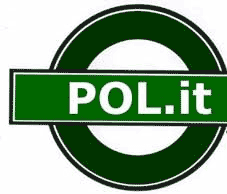 |
|
|
|
|
|
PREVISIONE E QUALITA'
Nizzoli Umberto* * Programma Salute Mentale et Dipendenze Patologiche, Responsabile Unità Sanitaria, Reggio Emilia Via Amendola 2, 42100 RE, Italia Tel. 39.0522.335527 fax 39.0522.335515 e.mail nizzoliu@ausl.re.it
RIASSUNTO L’Autore si "getta" su un tema di epistemologia sanitaria stimolato dai suoi dialoghi con il professor Soulé e gli scienziati che lo circondano. La riflessione prende le mosse dal dibattito, forte in medicina e dilaniante specie in Francia, fra esigenze di pratiche basate sull’evidenza e qualità dell’ascolto e della relazione terapeutica che rischia (si sente) di essere danneggiata dagli attuali tentativi di standardizzazione dell’agire clinico. L’A. per rispondere al quesito se il medico (o l’équipe professionale) debba prevedere e dichiarare di prevedere gli esiti del suo agire, cerca un filo conduttore nella cultura occidentale. In altri testi l’A. ha affrontato la relazione fra agire, ciò che emerge, e valori retrostanti all’atto sanitario. I servizi sono invitati a dichiarare anticipatamente le garanzie che riconoscono ai cittadini-utenti. Si potrebbe dire che i pazienti (ivi compresi quei malati speciali che sono le persone affette da addiction), proprio grazie alla loro malattia, sono elevati a giudici dei medici. Si apre il paradigma della qualità crescente dei servizi. Lo sviluppo continuo della qualità inevitabilmente si spinge a ridisegnare il potere dell’agire medico sottomettendolo a regole di metodo desunte da linee-guida, più o meno validate internazionalmente, ma comunque compatibili con l’organizzazione per la quale il medico lavora. La sanità basata sulla Evidence Based Medicine toglie autonomia al medico ma lo rassicura dai possibili attacchi di pazienti e familiari che caso mai dapprima lo avevano idealizzato.
ABSTRACT The Author throws himself into a topic of health epistemology stimulated by his conversations with professor Soulé and the scientists who encircle him. This toughts arrive from the heated debate, which is in medicine and particularly in France, about requirements of clinical evidence based practice and quality of the therapeutic relation that risks (is felt) being damaged by the present attempts to standardise the practice. In order to answer to the question of the doctor (or the professional team) should preview or declare to preview the outcomes of its act, the A. tries to find a leading thread in western culture. In his other works the A. faced the relation between the clinical act and underlying values to the health practice. The services are invited to declare the guarantees due to the citizen-customers. It could be said that the patients (among whom those special sick people who are the addicted) thanks to their disease, are elevated to judges of the professionals. At that point the paradigm of the increasing quality of the services openes. The continuous development of the quality inevitably is pushed to redesign the power of medical practice submitting it to rules of guide-lines, more or less validated internationally. Nevertheless compatible with the organisation for which the professional works. The practice based on the Evidence Based Medicines removes autonomy from the doctors but it protect them from the possible attacks of the patients and their relatives who perhaps at the beginning had idealised them.
In Personalità/Dipendenze, Vol. 8, fascicolo II, settembre 2002, Mucchi Editore, Modena; p. 173-178 |
Puoi usare il link proposto sotto per predere contatto con la Redazione di "PERSONALITA' / DIPENDENZE" per qualunque informazione tu desiderassi ricevere e per eventuale collaborazione scientifica; lo stesso vale per la Redazione di POL.it che ospita nelle sue pagine questa edizione on line. |
![]()
![]()





